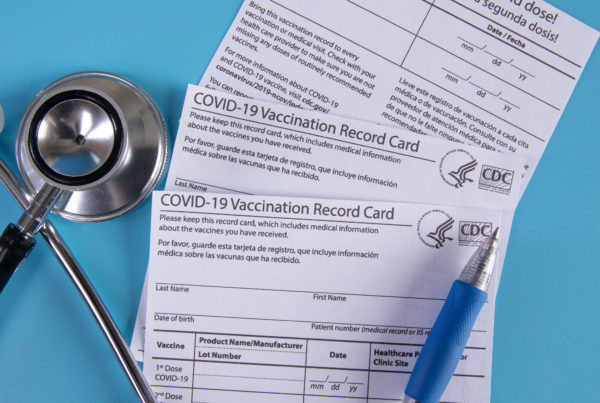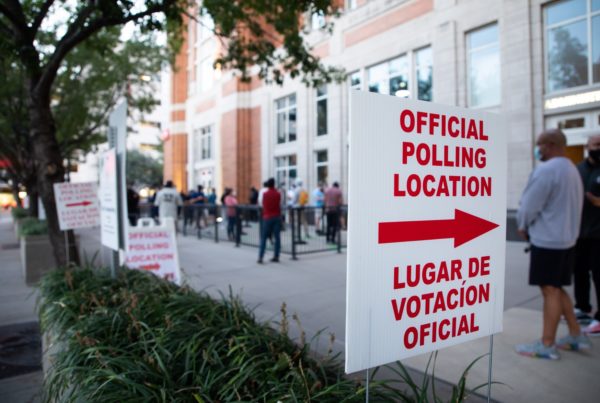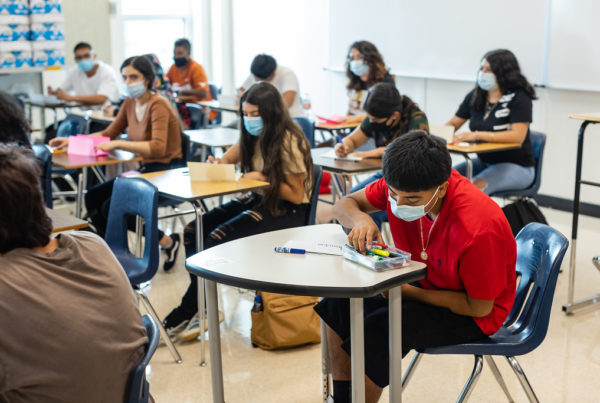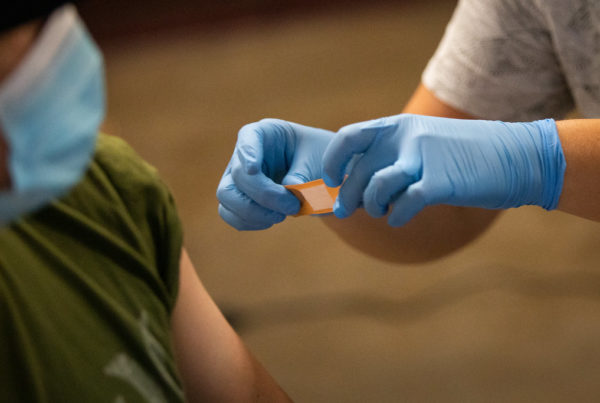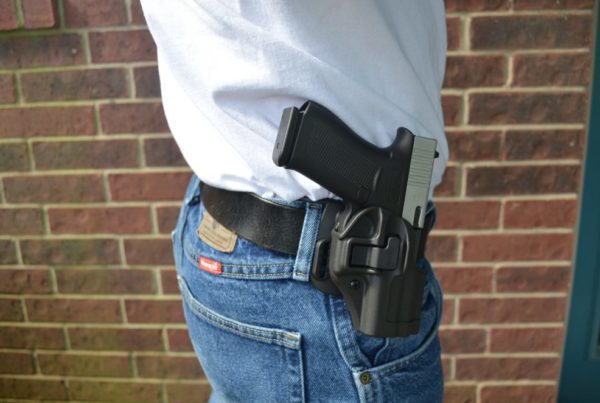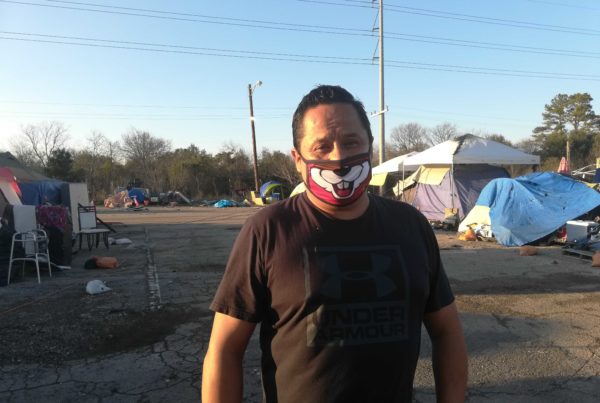Update Aug. 20, 2021: The Texas Education Agency announced that schools must now inform families when children are exposed to COVID-19. Previously, they were not required to inform parents of COVID-19 cases. Also, the Texas Supreme Court ruled to temporarily allow local mask mandates as of late Thursday evening.
Sarai Brinker thumbs through pages of comments she and a group of community members have gathered over the past few weeks. Brinker is a mom to two kids—10 and 11. Neither are old enough to get vaccinated, and for her, the thought of sending them back to school in person and unprotected has her uneasy.
There has been a lot of confusion surrounding mask mandates across Texas due to the legal tug of war between the state and counties over Texas Governor Greg Abbott’s ban on mask requirements. Still, some local officials continue to fight back. However, that’s not the case in Lubbock—the same city where Abbott announced the rescinding of the statewide mask mandate back in March.
The lack of mandated public health guidelines locally pushed Brinker into action as students returned to the classroom this week. Over the past few weeks she has worked to collect those pages of signatures from people asking Lubbock’s largest school district—Lubbock Independent School District—to strengthen their language on COVID-19 guidelines.
So far, almost 600 people have signed the call to action.
“When we have hundreds of children indoors for eight hours a day,” Brinker said, “all we want is for our kids to be able to go to school in a safe environment.”
Brinker and the others are not asking for a mask mandate. Instead, they’re asking for three things from the district: For teachers and school staff to model public health guidelines. To provide masks in the classroom to students and staff who may need one. And number one on the list is to change the language from “welcoming masks” to “encouraging them.”
The different verbiage is loaded for LISD Superintendent, Kathy Rollo, who believes the shift would place the burden on the schools rather than personal decision.
“So does encourage mean that you’re putting up posters suggesting that you wear masks?” she asked. “Does that mean that we’re getting on the announcements every day and saying, ‘ok everyone wear your masks.’”
She says the schools already know how to avoid spreading the virus. And, while she appreciates the community feedback, she’s also received several other messages asking that the school not require masks.
The district’s firm stance is a stark contrast to the fight several counties and school districts have taken up over Gov. Greg Abbott’s ban on mask mandates.
Even after the Texas Supreme Court temporarily halted lower court decisions protecting mask mandates in the Dallas and San Antonio areas, Dallas ISD Superintendent Michael Hinojosa refused to budge.
“We’re going to continue with our mask mandate,” he said in response to the Supreme Court’s move. “To keep students safe, to keep parents safe, to keep families safe and most importantly our teachers, who are on the front lines.”
Dr. Amy Thompson is on the frontlines in Lubbock. She is the chief executive officer of Covenant Children’s Hospital. Classes began for most students in Lubbock this week, and as Thompson has watched local hospital bed capacities decrease, she has grown increasingly concerned.
“We have had a number of days in these past couple of weeks where we have been out of pediatric beds in our children’s hospital,” Thompson said.
While it is still true that children are less likely to be hospitalized with COVID-19, she explained there are still cases. But the main driver in hospitalizations among children is another virus that’s on the rise — Respiratory Syncytial Virus (RSV) — which for Thompson, is making this situation even more alarming.
With the double-threat, she considered her worst-case-scenario as a pediatric healthcare provider.
“I never want to have to turn away a kid that needs care,” she said. It’s a situation Lubbock’s healthcare providers are already experiencing in the adult units.
She isn’t the only one worried about capacity. Parents are too.
Back at Sarai Brinker’s home, she clears the schoolbooks off her dining room table. She was looking forward to reverting the dining room back to its original purpose, but that’s on hold for now. The call to action she submitted to the district was not adopted.
So, for now, maps of the country and the world decorate the teal walls along with artwork her children painted. The china cabinet is a temporary bookshelf, lined with workbooks. Until her kids can get vaccinated this room will remain as is. A makeshift classroom.
Less than a week before her 10-year-old daughter was set to start school in person, Brinker and her husband made the difficult decision to withdraw her from LISD. “I went to Meet the Teacher Night,” she recalled. “I went into her classroom and the teacher wasn’t wearing a mask.” She will homeschool her daughter until things get better.
Her son on the other hand, about to begin middle school and nearing his 12th birthday—making him eligible for the vaccine—will return to school in person. “I’m just praying he doesn’t get sick in those six weeks,” she said, laughing nervously. She remained quiet for a moment, reflecting on the situation she has been forced into and muttered, “I’m conflicted,” like so many other parents are right now.
Brinker counts herself lucky still. Even with the difficult decision her family had to make just days before the start of school, she recognizes that having the option to homeschool her child is not something every parent has.
While LISD does not intend on adopting the three requests listed in the call to action from Brinker’s community group, Superintendent Kathy Rollo said they will continue cleaning protocols and encourage students and staff to get vaccinated. Students and staff can get masks from the school nurse. And they will conduct contact tracing and notify parents of COVID cases at their child’s school — measures now required by the state as of Aug. 19.




